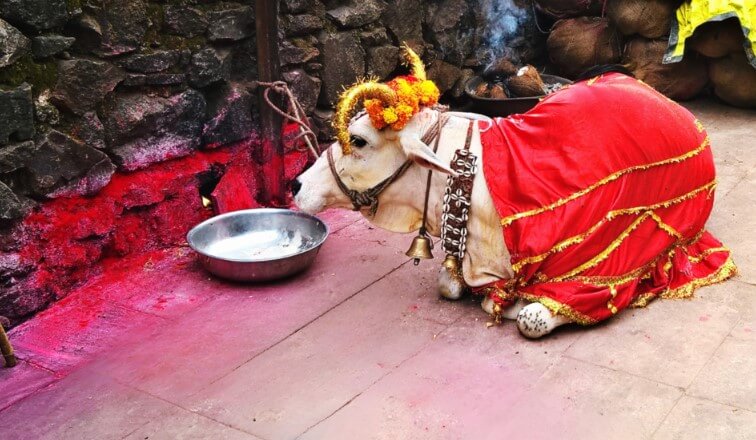Bach Baras, also known as Govatsa Dwadashi going to be celebrated today, Friday (August 30, 2024). This a traditional Hindu festival that honors the unique bond between a mother and her child, symbolized by the cow and her calf. This festival, observed mainly in northern parts of India, falls on the twelfth day of the Krishna Paksha in the month of Bhadrapada.
It’s a day filled with devotion, fasting, and storytelling, reminding us of the deep connection between parent and child. Let’s take a closer look at the story and rituals that make this day so special.
Bach Baras Katha: About the Katha
The story of Bach Baras revolves around a wealthy moneylender who built a large pond that stayed dry no matter how much he tried to fill it. Desperate for a solution, he consulted sages, who told him that only a great sacrifice would make the pond fill with water—either his eldest son or his grandson. After much hesitation, he chose his grandson, sending his daughter-in-law away so she wouldn’t witness the tragedy.
Miraculously, after the ritual, the pond filled with water. When the daughter-in-law returned and performed her daily prayers near the pond, her son reappeared, alive and covered in mud. The family believed it was the power of her unwavering devotion and pure heart that brought the child back, emphasizing the power of a mother’s love and faith.
Significance of the Vrat
Bach Baras is more than just a story—it’s a celebration of the protective nature of mothers. On this day, women observe fasts, pray, and perform rituals to seek blessings for their children’s health and happiness. They avoid consuming dairy products, showing respect for the cow, which symbolizes motherhood and nurturing.
Mothers gather in their homes or at local temples, offering food made from simple ingredients like wheat, jaggery, and millet. They sing traditional songs, share the stories of Bach Baras, and pray together. This day isn’t just about rituals; it’s about expressing unconditional love and seeking divine protection for their kids.
Also Read: Ekadashi Broto Talika 2024: ISKCON, Vaishnava Tithi, Parana Time
Key Rituals and Traditions of Bach Baras
- Fasting and Worship: The day begins early, with women bathing and preparing for a day of fasting. They avoid milk and its products, reflecting their respect for the cow. Special dishes made from grains are offered during the puja, as mothers pray for their children’s safety.
- Cow and Calf Worship: One of the central rituals is bathing and decorating cows and their calves. In many homes, cows are adorned with flowers and cloth. If a cow isn’t available, families use clay figures for the rituals, treating them with the same reverence.
- Storytelling and Community: The Bach Baras Katha is often recited in groups, passing down the story from one generation to the next. It’s not just about listening; it’s about learning the values of sacrifice, faith, and the powerful bond between a mother and her child.
- Acts of Charity: Charity is an important aspect of Bach Baras. Families donate food, clothes, and other essentials to those in need. This act of giving is believed to bring blessings and prosperity, reflecting the spirit of kindness that the festival promotes.
Even in today’s fast-paced life, Bach Baras holds a special place in the hearts of many. It’s a day to slow down, reflect, and reconnect with family values. The festival teaches us that love, faith, and kindness are timeless, and these lessons are just as relevant now as they were centuries ago.
As families come together to celebrate Bach Baras, it’s a reminder of the strength of a mother’s love and the importance of tradition. So, whether you’re participating in the rituals or simply spending time with loved ones, may the blessings of this day bring joy and peace to your family.
As a young independent News Portal, Epi Express needs your help to grow up. Please support us by bookmarking and following us on Google News.

